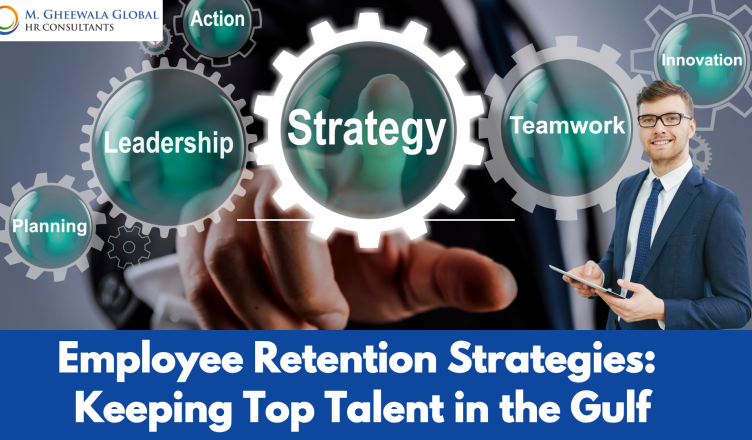The Gulf region, known for its thriving economy and diverse job market, faces a significant challenge in retaining top talent. With increasing competition and the allure of other opportunities, it’s imperative for organisations to implement effective employee retention strategies. By investing in employee satisfaction and creating a positive work environment, companies can foster loyalty, reduce turnover, and maintain a competitive edge.
10 Essential Strategies for Employee Retention in the Gulf
1. Competitive Compensation and Benefits
Market Research: Conduct regular market research to ensure your compensation packages are competitive and align with industry standards.
Comprehensive Benefits: Offer a comprehensive benefits package that includes health insurance, retirement plans, paid time off, and other perks that meet the needs of your employees.
Performance-Based Incentives: Implement performance-based incentives, such as bonuses, commissions, or stock options, to reward top performers and motivate employees to achieve their goals.
2. Flexible Work Arrangements
Remote Work Options: Consider offering remote work options or flexible working hours to accommodate employees’ personal and professional needs.
Work-Life Balance Initiatives: Promote a healthy work-life balance by encouraging employees to take breaks, use vacation time, and participate in wellness programs.
3. Career Development Opportunities
Training and Development: Invest in training and development programs to help employees acquire new skills and advance their careers.
Mentorship Programs: Establish mentorship programs to connect employees with experienced professionals who can provide guidance and support.
Internal Mobility: Create opportunities for internal mobility to allow employees to progress within the organisation and take on new challenges.
4. Recognition and Rewards
Employee Recognition Programs: Implement formal employee recognition programs to acknowledge and reward outstanding performance.
Public Appreciation: Publicly recognise employees’ achievements to boost morale and foster a sense of belonging.
Personalised Rewards: Offer personalised rewards that align with employees’ interests and preferences.
5. Positive Company Culture
Open Communication: Foster open communication channels between employees and management to encourage feedback and address concerns
Team Building Activities: Organise team-building activities and events to promote camaraderie and strengthen relationships.
Company Values: Clearly define and communicate your company’s values to create a shared sense of purpose and direction.
6. Employee Engagement Initiatives
Surveys and Feedback: Conduct regular employee satisfaction surveys to gather feedback and identify areas for improvement.
Employee Assistance Programs (EAPs): Offer EAPs to provide confidential counseling and support for employees facing personal or work-related challenges.
Social Events: Organise social events and activities to foster a sense of community and belonging among employees.
7. Work-Life Balance Initiatives
Flexible Work Arrangements: Offer flexible work arrangements, such as remote work or flexible hours, to help employees manage their personal and professional responsibilities.
Wellness Programs: Promote wellness programs, including health screenings, fitness challenges, and stress management workshops.
8. Competitive Salary
Market Research: Regularly conduct market research to ensure your employees are compensated fairly and competitively.
Regular Reviews: Conduct regular salary reviews to ensure employees are rewarded for their contributions and performance.
9. Performance Management Systems
Clear Expectations: Set clear expectations and performance goals for each employee.
Regular Feedback: Provide regular feedback and coaching to help employees develop and improve.
Performance Reviews: Conduct annual performance reviews to assess employees’ performance and discuss career development opportunities.
10. Supportive Leadership
Empowering Leadership: Empower employees by delegating responsibilities and trusting them to make decisions.
Mentorship and Coaching: Provide mentorship and coaching opportunities to help employees develop their skills and reach their full potential.
Recognition and Appreciation: Acknowledge and appreciate employees’ contributions to the organization.

